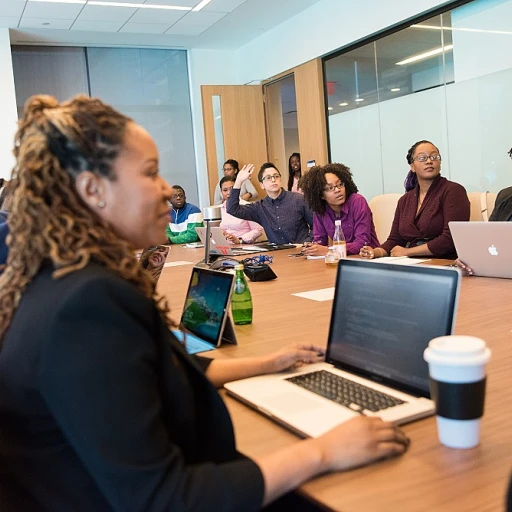
Understanding Organizational Culture Assessment
Exploring the Importance of Organizational Culture
Organizational culture encompasses the behavioral norms, values, and practices that dictate how members of an organization interact and conduct their work. It plays a crucial role in influencing performance, leadership effectiveness, and overall organizational success. As organizations strive for cultural improvements, conducting an organizational culture assessment becomes an essential step in identifying the current culture and envisioning the ideal culture.
Culture assessment serves as the foundation for understanding the cultural dynamics within an organization. By utilizing tools such as the Organizational Culture Inventory (OCI), companies can gauge their current culture against the preferred culture, highlighting areas for potential change and growth. This assessment helps organization members learn about their current norms and standards, fostering a team-oriented atmosphere for cultural change.
It's vital for organizations to recognize the impact of their culture on long-term effectiveness. Culture assessment guides organizations in addressing competing values and aligning the cultural aspects with business objectives, ultimately aiming for organizational effectiveness and enhanced cultural understanding. By assessing and subsequently redefining their culture, companies can achieve sustainable improvements in their operational environment.
Understanding the significance of a comprehensive culture assessment paves the way for constructive change processes within organizations. To explore the diverse benefits of such initiatives further, consider enhancing team cohesion through specific strategies like retreats.
The Role of Office Managers in Culture Assessment
The Crucial Role of Office Managers in Fostering Organizational Culture
Office managers hold a pivotal position in facilitating the dynamics of organizational culture. Their responsibilities stretch beyond administrative tasks, making them integral to understanding the cultural aspects within a company. By participating in culture assessments, they act as bridges between leadership and team members, ensuring seamless communication and aiding in the cultural change process. Office managers frequently interact with diverse departments, allowing them to gather insights into the current cultural norms of an organization. With these insights, they can contribute to the organizational culture inventory, assessing both the "current culture" and "preferred culture" to identify areas that require transformation. This alignment helps in achieving the "ideal culture," which is essential for organizational effectiveness. Engagement with cultural assessment initiatives like those advocated by Human Synergistics and the Organizational Culture Inventory (OCI) can empower office managers to promote behavioral norms that align with the long-term goals of the organization. By leveraging these tools, they can foster a culture of continuous "learning" and "improvement," ultimately enhancing "team performance" and bolstering the effectiveness of the organization. Furthermore, office managers play a critical role in relaying the purpose and benefits of culture assessments to staff, encouraging participation and honest feedback. This transparency aids in identifying "competing values" within the team organizations, and paves the way for constructive conversations about cultural transformations. To gain insights on how to lead these initiatives with a servant's heart, consider exploring this inspiring guide on leadership methodologies. Understanding and implementing such approaches ensures that the assessment process is handled with empathy and pragmatism, building trust among organizational members. Ultimately, office managers are vital in aligning cultural "norms" with the company’s objectives, fostering an environment where every member feels valued and engaged, driving positive organizational change.Tools and Techniques for Effective Culture Assessment
Effective Culture Evaluation Techniques
Evaluating the current organizational culture within UK companies is pivotal for understanding behavioral norms, gauging organizational effectiveness, and fostering positive change. Various techniques and tools can be utilized to effectively assess the culture, identify gaps, and guide the change process.- Organizational Culture Inventory (OCI): A popular tool, the OCI measures the current culture of an organization by looking at the behavioral norms and values that dictate how members should behave. It evaluates both the current and ideal cultures, providing insights into cultural aspects that require change and those that foster positive team dynamics.
- Surveys and Questionnaires: These can be conducted to gather introspections on existing cultural practices, allowing members to voice their perspectives on the current culture. They can be structured to highlight areas pertinent to organizational performance and effectiveness, yielding a wealth of data for analysis.
- Interviews and Focus Groups: Engaging people in one-on-one or group dialogues encourages honest sharing of experiences and perceptions about the organizational culture. It offers deeper insights into the human-centric aspects of the organization's current culture.
- Competing Values Framework (CVF): This framework aids in evaluating how different values are prioritized within an organization, providing a structural approach to understanding cultural dynamics. It emphasizes flexibility, stability, internal focus, and external positioning, guiding organizations towards their preferred culture.
- Behavioral Cultural Audits: These assessments analyze everyday interactions and practices within the workplace to pinpoint cultural tensions or shifts. It's a tangible approach to observe firsthand the cultural norms in action.
Challenges in Implementing Culture Assessment in UK Companies
Overcoming Challenges in Culture Assessment
The process of conducting a culture assessment in organizations within the UK is fraught with various obstacles, making it crucial for business leaders and office managers to approach it with care and strategic planning. One of the predominant challenges encountered is resistance to change. Many team organization members may feel comfortable with the current culture and may be wary of shifting to a cultural change without understanding its long-term benefits. Leadership plays a critical role in addressing this and must invest in communicating the importance of culture assessment as a tool for improving performance and organizational effectiveness. Another challenge lies in effectively measuring behavioral norms and cultural aspects. Using tools like the Organizational Culture Inventory (OCI) helps in evaluating the current culture inventory versus the ideal culture or preferred culture. However, interpretations of these inventories can vary. Thus, it requires expertise to navigate these readings accurately, ensuring that culture change aligns with organizational goals. Moreover, addressing competing values within the organization can be a complex endeavor. Understanding how different segments of the workforce view the ideal culture versus the current culture is essential in fostering a synergistic environment. This requires engaging with human aspects such as values and leadership, blending them with the formal assessment from OCI to paint a comprehensive picture of the workplace dynamics. Lastly, the capacity to integrate human synergistics into the assessment process is often underestimated. The ability to learn from the assessment and align it with organizational goals often determines whether the cultural assessment can truly inform and drive effective cultural and organizational change. By thoroughly understanding and addressing these challenges, UK companies can create an environment conducive to positive change and sustained organizational growth.Case Studies: Successful Culture Assessments in UK Companies
Real-World Insights
Exploring successful culture assessments within UK companies reveals valuable insights into how organizations handle this complex yet rewarding process. One standout example includes a major retail chain which recognized a gap between their current culture and the ideal culture they aspired to. By employing culture assessment tools like the Organizational Culture Inventory (OCI), they were able to identify the behavioral norms driving their current organizational effectiveness and areas of improvement.
The targeted approach of this organization, which involved collecting feedback from all team members, allowed them to reconcile current and ideal cultural aspects. With the insights gained, leadership prioritized the change process by aligning their restructuring efforts with the preferred culture highlighted by their assessment.
Another noteworthy case involved a technology firm that faced challenges with cultural alignment during a period of rapid expansion. Through comprehensive cultural assessments, the organization analyzed their culture inventory thoroughly and adhered to strategies that facilitated collaborative and synergistic environments. The insights gained helped the organization foster an environment that encouraged creativity and enhanced overall team organization, directly influencing their performance and long-term organizational goals.
Organizations often experience shifts where cultural assessments indicate competing values within their team dynamics. These circumstances require a carefully managed change process to align members with the cultural norms necessary for optimal organizational performance. By learning from successful UK companies, others can mitigate the potential pitfalls and harness the positive aspects of cultural assessment to drive change that resonates throughout the organization, ultimately aligning it with its strategic objectives.
Future Trends in Organizational Culture Assessment
Adapting to Emerging Trends in Culture Assessment
As organizations continue to evolve, culture assessment is also undergoing significant changes to keep up with modern needs. Focus is increasingly placed on a company’s ability to understand and implement dynamic cultural changes efficiently. Here’s a glimpse of what the future may hold for organizational culture assessment:- Integrated Digital Tools: The use of advanced digital tools is rising. These tools help in capturing comprehensive data on various cultural aspects and behavioral norms efficiently. By leveraging technology, organizations can better identify their current and ideal cultures and track changes over time.
- Remote and Hybrid Work Considerations: With more team members working remotely, organizations must include remote work cultural assessments. This involves how cultural norms differ remotely and establishing a culture that maintains team organization and communication.
- Behavioral Economics Applications: Emerging methodology from behavioral economics is being integrated into culture assessments. These strategies are helping organizations predict and direct cultural change by understanding human behavior at a deeper level.
- Continuous Culture Inventory: Instead of treating assessments as a one-time or annual activity, many organizations will start using culture inventory as a continuous improvement tool. This allows cultural insights to be updated regularly, aligning with the current cultural and organizational needs.
- Emphasis on Human Synergistics: Future assessments are likely to focus more on human synergistics—how leadership and team interactions can drive or detract from preferred cultural values. By understanding these dynamics, organizations can foster an ideal yet robust workplace culture.
- Enhanced Focus on Organizational Effectiveness: An increasing linkage between culture assessment and organizational effectiveness metrics will emerge. This requires organizations to consider long-term impacts of cultural shifts on performance.













